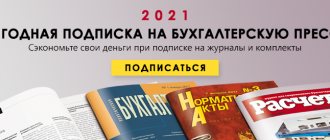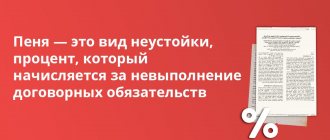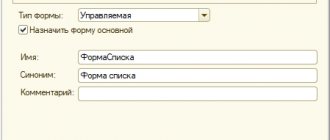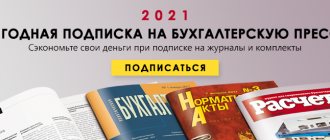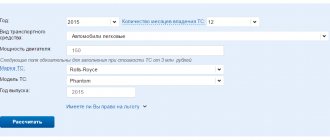Tax control measures include conducting tax audits, requesting explanations and documents, inspecting premises, and so on. They are mentioned in Article 82 of the Tax Code of the Russian Federation. One of the special forms of tax control is additional measures , which can be assigned at the discretion of the management of the tax authority. Their goal is to confirm and consolidate the conclusions of the Federal Tax Service employees who conducted the inspection. As part of such activities, inspectors seek to collect facts that will confirm the commission of an offense.
We invite you to get acquainted with the answers of Tax Service specialists to 4 important questions related to additional control measures. They are given in the letter of the Federal Tax Service dated October 19, 2021 No. ED-4-2 / [email protected]
What are additional activities and when are they assigned?
Additional tax control measures are discussed in paragraph 6 of Article 101 of the Tax Code of the Russian Federation. This includes requesting documents, questioning witnesses and conducting an examination . Such measures are appointed by decision of the head of the tax authority or his deputy. The basis for making a decision is the need to obtain additional evidence that would confirm or refute the fact that the taxpayer committed a violation.
The period for carrying out such activities is a month for a regular audit, and 2 months for an audit of a consolidated group of taxpayers.
The aforementioned activities are scheduled before the tax audit is completed and a report is drawn up and handed over to the taxpayer. And also before its materials are reviewed by the management of the Federal Tax Service.
Definition of the concept
Additional activities of the tax authority include conducting a series of control checks after the main stage in order to obtain the necessary information regarding the activities of the taxpayer.
The need to conduct them arises in order to obtain confirmation or refutation of suspicions that have arisen among inspectors. They act on the basis of Art. 101 Tax Code of the Russian Federation.
Important: during the implementation of activities, specialists should be focused on finding new errors and only within the framework of the activities that were checked during the main actions.
That is, using their powers to look for evidence of new errors, they have no right. Even if such errors were discovered, they are skipped, since there is a restriction on additional activities, on the basis of which tax authorities do not have the right to make new claims.
The taxpayer is notified of the need to conduct several more investigations during the process of reviewing the results of the main audit. When generating such a notice, the Federal Tax Service is obliged to inform about the timing of its implementation and justify its necessity.
The new rules for conducting tax audits are described in detail in this video:
Important: all of the above circumstances are required to be included in the notification form. Here you will learn how and according to what rules tax notices are sent to taxpayers.
If during an additional inspection evidence of suspicion was discovered, the period for detecting a crime of law will be considered the formation of an act, taking into account the period of additional inspection in accordance with the regulations, Art. 115 of the Tax Code of the Russian Federation to establish liability.
What document is used to document the results?
The results of additional measures must be documented in a special document - an addition to the tax audit report . This is stated in paragraph 6.1 of Article 101 of the Tax Code of the Russian Federation. This rule, like several others, came into force on August 3 and applies to inspections that were completed after September 3, 2018.
The document is generated within 15 working days after the end of the additional event. It needs to reflect the following parameters:
- start and end date of the event;
- its description;
- evidence that was obtained during its course.
Types of checks
According to the legislation, secondary measures can only be carried out in certain forms:
- interrogation of witnesses on the basis of Art. 90 Tax Code of the Russian Federation;
- examination – Art. 95 Tax Code of the Russian Federation;
- requesting documentation on the basis of Art. 93, 93.1 of the Tax Code of the Russian Federation - this option is possible only in the process of exercising control over the taxpayer himself, his subordinates or close associates. This means that it is possible to request documentation only during the periods indicated by Art. 88, 89, 101 Tax Code of the Russian Federation.
Important: in fact, this opportunity ensures that tax inspectors study the entrepreneur’s documentation outside the periods of the main stage of control, and at the same time, the deadlines will not be legally violated.
In addition, based on Federal Law No. 302 of 2021, there are changes regarding the conduct of inspections, namely:
- an additional on-site tax audit can now only occur on the basis of a received updated declaration with a reduction in the amount of tax without any supporting or justified documents;
- The repeated request by tax authorities for documents is limited for any type of documentation, including holding an event on the basis of Art. 93.1 Tax Code of the Russian Federation;
- the deadline for submitting documents has been increased to 10 working days;
- Formation of an addition to the act based on the results of the inspection.
Dates and procedure
Legislation - Art. 101 of the Tax Code of the Russian Federation, only a month is defined for the period of the inspection; 2 months are allowed only in the case of an inspection of a consolidated group of entrepreneurs.
The entire event is closed, during which inspectors have the right to perform an unlimited number of designated types of checks.
Important: if the taxpayer interferes with an additional audit, specialists have the right to act on the basis of Art. 94 of the Tax Code of the Russian Federation and seize materials.
At the stage of interviewing witnesses, according to the law, the citizen being interviewed can be any person who, in the opinion of tax specialists, has valuable information.
But there are also restrictions; witnesses cannot be:
- persons with mental and physical illnesses, elderly citizens who, due to their thinking, are unable to adequately perceive information and reality;
- citizens who have received the necessary information as a result of their professional activities - lawyers, advocates and others.
Important: in this case, the witness may refuse to testify on the basis of legislative acts, for example, on the basis of Art. 51 of the Constitution, when he cannot testify against himself, relatives or spouses.
How are additional tax control measures carried out?
Expertise is used in the process of researching a specific area of the production process, when the tax authorities themselves are not able to check the legal basis of the activity.
In this case, an expert is engaged on the basis of an agreement and a notification from the taxpayer about conducting an examination as part of the control measure. Such an action, as already indicated, can be carried out repeatedly until specific issues are resolved.
In order for a tax audit to take place in an additional format, the head of the department must initially issue an order. Next, the taxpayer gets acquainted with it, and an audit is carried out within the specified period from the date specified in the notification.
How is the decision on additional verification made?
Initially, a decision is made based on the results of a scheduled tax audit; if no violations were identified during the audit, then such a document is not generated at all.
The decision must indicate:
- the period for making a decision is no more than 10 days from the end of the inspection, in some cases a month;
- information regarding the participation of the taxpayer himself in the decision-making process - he has the right to give explanations for each case;
- request for additional materials - explanations, documents, if unresolved issues arise during the consideration of the case;
- decision - based on the results of the inspection, the manager indicates his decision, for example, the presence of such and such shortcomings, what is the responsibility and whether additional verification is needed. At the same time, it must set out everything in detail and indicate the articles on the basis of which liability arises.
Here you will learn what a taxpayer’s personal account is and what data it contains.
The decision regarding an additional inspection is handed to the businessman within 5 days from the date of its adoption, and it comes into force a month after delivery.
Important: if during this month the organization appeals the decision in the court of appeal, then its legal force will take place in accordance with the court decision.
In addition, the taxpayer has the right to know where and when the materials will be studied and a decision will be made on them. That is, at each stage of their actions, tax authorities are required to notify the taxpayer.
Otherwise, he will have grounds to go to court to declare the actions of the tax authorities illegal.
What materials for conducting an inspection?
After an additional tax audit and during its course, materials are generated that are added to the general materials for a specific case. The taxpayer has the right to familiarize himself with them on the basis of an official request to the authorities.
Important: the taxpayer has the right to access information and take part in consideration of the issue after 2 days from the date of application. At the same time, the results of control actions can be the most unpredictable - from the recognition of an error on the part of the taxpayer to the closure of the enterprise.
Based on all the materials received and the results of the audit, tax specialists draw up a protocol on the outcome of the case, which should indicate:
- document's name;
- date, time and place of events;
- Full name of the compiler;
- a list of all persons who took part in the action;
- the results of the audit, in full, must contain detailed descriptions of each stage.
Important: such a protocol must be signed by both parties regarding their agreement with the information specified in it, so it is important to pay the utmost attention to its study.
Could an additional activity reveal new violations?
No, he can not. The point of additional activities is to find facts confirming already identified offenses . In clause 6.1. Article 101 of the Tax Code of the Russian Federation states that additional evidence should be indicated in the addition to the inspection report. This implies evidence in relation to those offenses that are indicated in the tax audit report itself.
The same conclusion was made in the resolution of the Constitutional Court of July 14, 2005 No. 9-P and the resolution of the Plenum of the Supreme Arbitration Court of July 30, 2013 No. 57. They indicate that additional measures are aimed at collecting evidence on those violations that have already been discovered.
Even if during additional measures some other violations are revealed, inspectors should not include them in addition to the report.
Extension of additional tax audit activities - a new reality
Initially, the Tax Code of the Russian Federation (TC RF) provides for the following procedural deadlines for conducting a tax audit:
· 3 months to conduct a desk tax audit (clause 2 of Article 88 of the Tax Code of the Russian Federation);
· 2 months to conduct an on-site tax audit with the right of the tax authority to extend this period to 4 months, in exceptional cases – up to 6 months (clause 6 of Article 89 of the Tax Code of the Russian Federation);
· 2 months to draw up an on-site tax audit report, 10 working days to draw up a desk tax audit report (clause 1 of Article 100 of the Tax Code of the Russian Federation);
· 5 working days for delivery of the tax audit report (clause 5 of Article 100 of the Tax Code of the Russian Federation);
· 10 working days to make a decision based on the results of a tax audit or a decision to carry out additional tax control measures, 1 month to extend the consideration of tax audit materials (clause 1 of Article 101 of the Tax Code of the Russian Federation);
· 1 month to carry out additional tax control measures (clause 6 of Article 101 of the Tax Code of the Russian Federation);
· 3 months to submit a demand for tax payment from the date the tax authority identifies the arrears (clause 1 of Article 70 of the Tax Code of the Russian Federation);
· 20 working days to submit a request for tax payment based on the results of a tax audit (clause 2 of Article 70 of the Tax Code of the Russian Federation).
And others.
According to the Constitutional Court, the decision to carry out additional tax control measures is made after the head (deputy) of the tax authority has established (determination dated May 27, 2010 No. 650-О-О):
· whether the person in respect of whom the tax audit report was drawn up committed or did not commit a violation of tax legislation;
· whether the identified violations constitute a tax offense (clause 5 of Article 101 of the Tax Code of the Russian Federation).
Additional tax control measures can only be aimed at collecting additional evidence relating to offenses identified during the audit, but not at identifying new offenses committed by the taxpayer in the audited tax period (clause 39 of the Resolution of the Plenum of the Supreme Arbitration Court of the Russian Federation dated July 30, 2013 No. 57).
Thus, additional measures should not be aimed at establishing new facts not reflected in the tax audit report (resolution of the AS ZSO dated December 18, 2015 No. F04-27598/2015 in case No. A45-6043/2015, AS UO dated September 22, 2015 No. F09 -5057/15 in case No. A34-5436/2014). Otherwise, these facts would lead to a violation of the rights and legitimate interests of the taxpayer (clause 6 of Article 108 of the Tax Code of the Russian Federation).
The period for carrying out additional tax control measures cannot exceed 1 month (2 months when checking a consolidated group of taxpayers). During this period, the tax authority in relation to the taxpayer being inspected has the right to:
· requesting documents in accordance with Art. 93.93.1 Tax Code of the Russian Federation;
· interrogation of witnesses (Article 90 of the Tax Code of the Russian Federation);
· examination (Article 95 of the Tax Code of the Russian Federation).
The given list of control measures is closed. However, the number of named additional measures during the period established by clause 6 of Art. 101 of the Tax Code of the Russian Federation, unlimited (Letter of the Ministry of Finance of Russia dated July 15, 2016 No. 03-02-07/1/41426).
At the same time, on the basis of the norm of paragraph 14 of Article 101 of the Tax Code of the Russian Federation, violation of the essential conditions of the procedure for considering tax audit materials is grounds for the cancellation by a higher tax authority or court of the decision of the tax authority adopted based on the results of the tax audit.
Tax legislation classifies the following situations as such significant violations within the meaning of paragraph 14 of Article 101 of the Tax Code of the Russian Federation:
· when the taxpayer was not provided with the opportunity to participate in the consideration of tax audit materials;
· when the taxpayer is not provided with the opportunity to provide explanations, that is, to present his written (oral) objections to the tax claims set out in the audit report;
· other violations of the procedure for considering tax audit materials.
Currently, situations are widespread where tax authorities violate all the procedural deadlines mentioned at the beginning of the article. However, arbitration courts believe that such violations do not entail negative legal consequences for the tax authority that could affect the legality of the final decision based on the results of a tax audit in the sense of applying paragraph 14 of Article 101 of the Tax Code of the Russian Federation.
But if we are already accustomed to violations of all procedural deadlines, the latest innovation was the extension of the on-site tax audit after consideration of the taxpayer’s objections to the report on the additional measures taken. In the Ruling of the Supreme Court of the Russian Federation dated February 13, 2020 No. 301-ES19-27446 in case No. A11-3918/2018, the court actually allowed tax authorities to extend the on-site tax audit after considering objections to the act for additional tax control measures.
Judicial practice in this case no longer sees violations of the rights and legitimate interests of the taxpayer in the actions of tax officials. And this is one of the necessary grounds for invalidating non-normative legal acts, illegal decisions and actions (inaction) of bodies exercising public powers (part 1 of article 198, part 4 of article 200, part 3 of article 201 of the Arbitration Procedure Code of the Russian Federation) . The position of the courts is that due to additional tax control measures, the taxpayer was not accrued additional taxes, penalties and fines. But it is, of course, wrong to consider only the fact of additional tax charges as the only possible evidence of violations of the rights and legitimate interests of the taxpayer.
In my opinion, sufficient evidence is that the taxpayer has been in a state of legal uncertainty for a long time and beyond the time limits allocated by the Tax Code of the Russian Federation for the tax authorities to resolve the issue of the presence or absence of tax violations by the taxpayer. And also an infringement of the taxpayer’s rights in terms of the right to a tax refund (no one will return overpaid taxes to the taxpayer during an on-site tax audit).
The taxpayer is supported by the Resolution of the Constitutional Court of the Russian Federation dated July 16, 2004 No. 14-P, the Determination of the Constitutional Court of the Russian Federation dated April 20, 2017 No. 790-O and the Resolution of the Presidium of the Supreme Arbitration Court of the Russian Federation dated March 18, 2008 No. 13084/07. In fact, it turns out that the Tax Code of the Russian Federation does not establish any procedural deadlines for the tax authority.
Does the Federal Tax Service have the right to assess additional taxes after additional measures have been taken?
There is a resolution of the Plenum of the Supreme Arbitration Court of the Russian Federation dated July 30, 2013 No. 57, which states: after a decision has been made based on the results of an inspection, the Federal Tax Service cannot change it in such a way that it worsens the position of the company or individual entrepreneur being inspected . In other words, additional taxes cannot be assessed.
However, this is a general case, and there are exceptions to it in judicial practice. An example is the resolution of the AS of the Ural District dated April 23, 2015 No. F09-1929/15. When filing an objection to the act, the taxpayer submitted documents that were not available to the inspectors during the on-site inspection. The study of these documents led to an increase in additional charges.
The taxpayer went to court, but it was supported by the tax authority. The judges indicated that the documents presented were related to violations that were identified during the inspection. And additional charges made on their basis are legal , since otherwise the taxpayer would have avoided paying tax on the taxable item that he had hidden. The Supreme Court, by its ruling of August 20, 2015 No. 309-KG15-9617, upheld the said decision.
Dates
An on-site tax audit is usually carried out on the territory of the subject being inspected. If it is impossible to provide premises, planned activities are carried out at the location of the tax authority.
The usual period for conducting an inspection cannot exceed 2 months from the date of the decision. But in some cases this period can be extended from 4 to 6 months, including:
- if the inspection detects additional factors of violation of tax legislation;
- failure to provide all required documents within the established time limits;
- the presence of unforeseen circumstances, including the occurrence of emergencies.
During the course of events, the inspection may be suspended for up to 6 months. The reasons for such actions must be justified, for example:
- it is required to obtain information from foreign government agencies within the framework of international relations;
- there is a need for an examination;
- documents received from the subject being inspected must be translated into Russian.
The completion date of the on-site inspection is considered to be the drawing up of a corresponding certificate by the Federal Tax Service inspectors. Based on the work performed, the taxpayer is provided with the corresponding final conclusion - an act on conducting an on-site tax audit.

